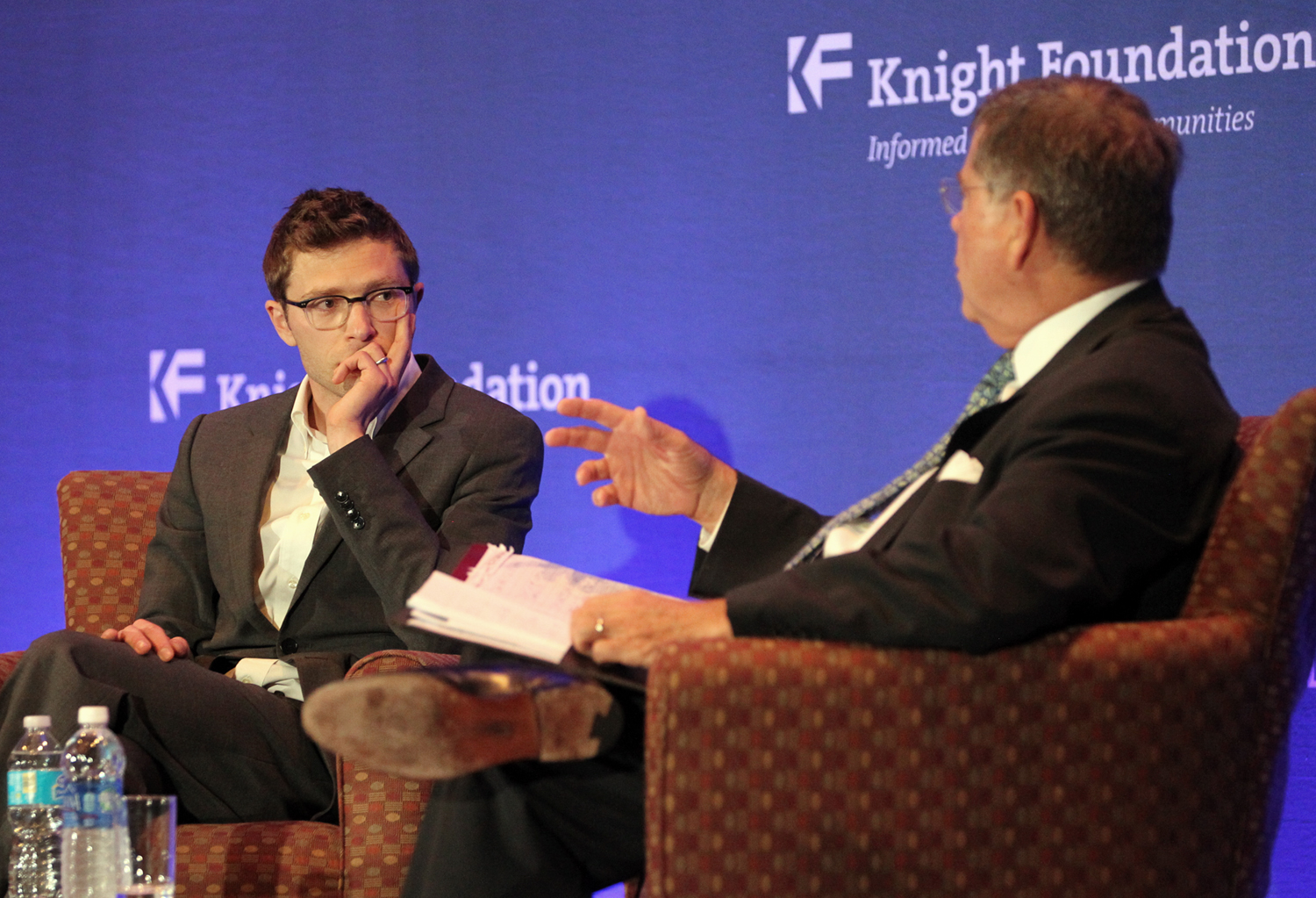
In first public comments since plagiarism scandal, Jonah Lehrer blames “arrogance, need for attention” for lies
To the legions whose trust he betrayed, science writer and author Jonah Lehrer says he is profoundly sorry. “It is my hope that someday my transgressions might be forgiven,” he said. “I am convinced that unless I talk openly about my failures so far … the lessons will not last.” Lehrer broke the basic code of journalism. The 31-year old, who had made a name for himself as a leading explainer of how the brain works, was caught cut-and-pasting his own stories, inventing quotes and reproducing errors even after sources pointed them out. Before a crowd of 300, and even more watching on livestream at Knight Foundation’s Media Learning Seminar, Lehrer sought to explain his ethical lapses while knowing he was bereft of the credibility he once enjoyed. “I found the broken part of me and that part has a name. My arrogance, need for attention, carelessness, the ability to make excuses to explain my carelessness and my tendency to believe my own excuses,” said Lehrer. He couldn’t protect himself from himself. Knight Foundation invited Lehrer to explore the neurocience of decision-making, both good and bad, including in his own life. By the time he took the stage for his first public remarks since getting caught reusing his own material and making up quotes, online debate about whether he should even be addressing audiences was cycling well into its second day. As he spoke, Twitter comments flowed down a giant screen next to the stage, a barometer of the response to his remarks. “There are important lessons here for all of us as decision makers and supporters of information projects,” Knight Foundation President Alberto Ibargüen said. After his fabrication scandal broke last summer, Lehrer says he searched for reasons — any reasons — to avoid blaming himself or taking responsibility. He linked a story of the FBI’s devastatingly wrong findings in the Brandon Mayfield case to the confirmation biases in his own life. “If we are not prepared to deal with our mistakes, if we try to hide them away, then any error can become a catastrophe,” he said. Now, Lehrer is pledging to structure his own life to prevent future ethical failings in the writing field, committing anything he writes in the future to strict footnoting and full fact checks, whether it’s a blog post, speech or book. “There is, of course, nothing innovative about these procedures,” Lehrer said. “The vast majority of journalists don’t need to be shamed into following them, but I did. Such a writing process requires a discipline that I just don’t have. I need the rules.” He vowed to continue to apologize. “Regardless of whether I ever write again, I need to reckon with what I did publicly. I couldn’t imagine the story of what I tell my daughter one day that didn’t include today, about standing up here and saying what I did wrong.” Lehrer ended his talk with a Bob Dylan quote – one he said was real this time. Several journalists online and in the room instantly fact-checked it. Elise Hu is a digital editor at NPR and blogging this event for Knight. You can follow the Media Learning Seminar on Twitter @knightfdn or with the hashtag #infoneeds.
Related: “Knight Foundation regrets paying Lehrer speaking fee” on KnightBlog
Recent Content
-
Community Impactarticle ·
-
Community Impactarticle ·
-
Community Impactarticle ·


